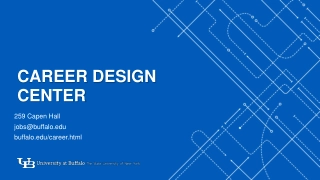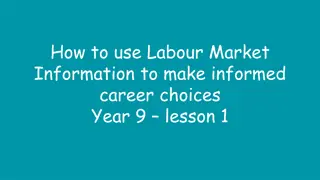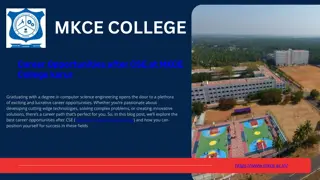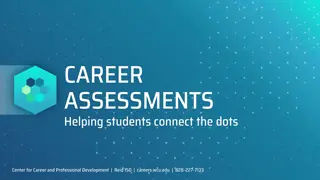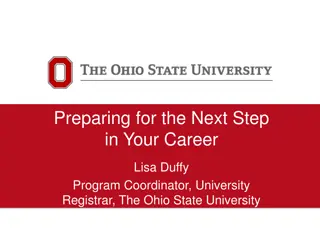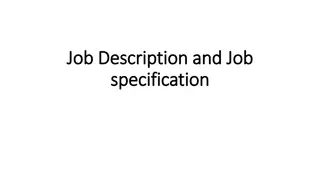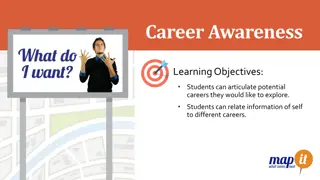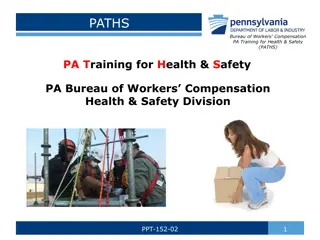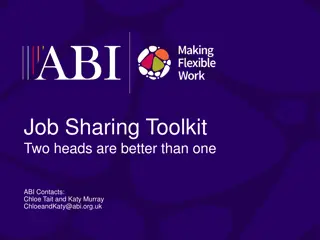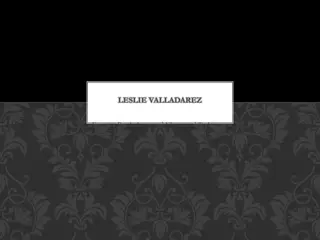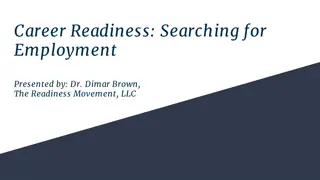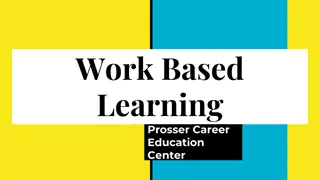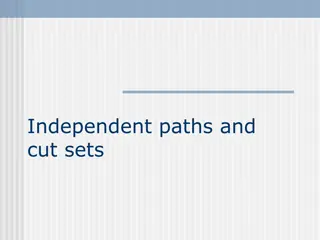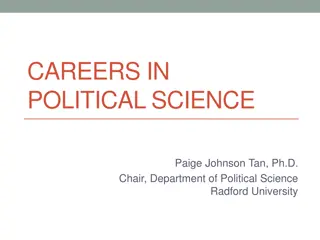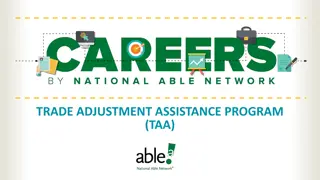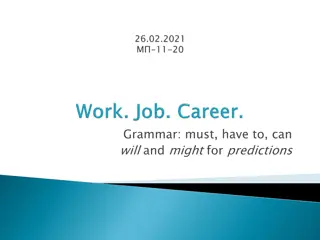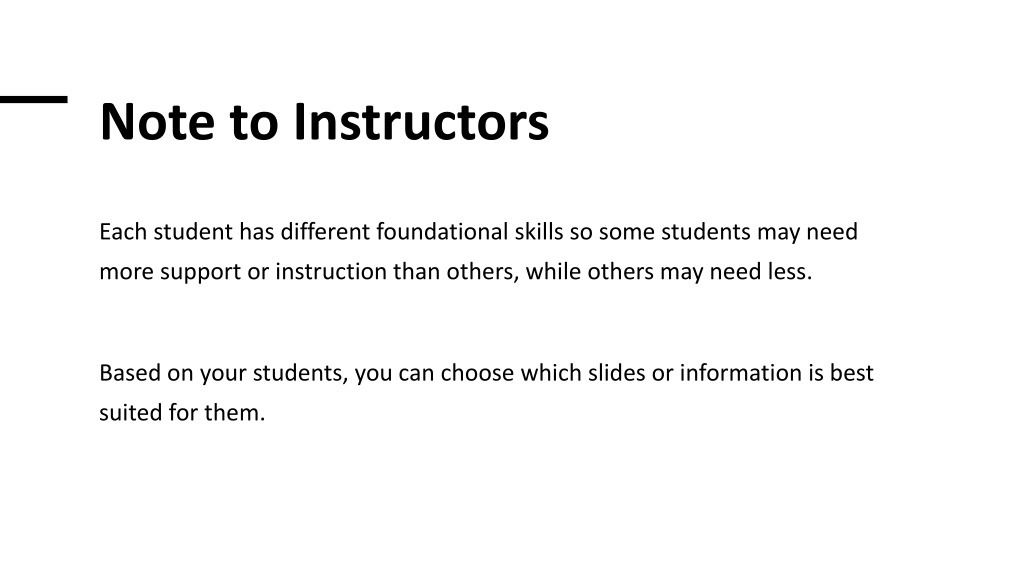
Career Development Vocabulary and Concepts
Enhance your understanding of career-related terms such as education, skills, occupation, abilities, and more. Tailor instruction to meet individual student needs effectively.
Download Presentation

Please find below an Image/Link to download the presentation.
The content on the website is provided AS IS for your information and personal use only. It may not be sold, licensed, or shared on other websites without obtaining consent from the author. If you encounter any issues during the download, it is possible that the publisher has removed the file from their server.
You are allowed to download the files provided on this website for personal or commercial use, subject to the condition that they are used lawfully. All files are the property of their respective owners.
The content on the website is provided AS IS for your information and personal use only. It may not be sold, licensed, or shared on other websites without obtaining consent from the author.
E N D
Presentation Transcript
Note to Instructors Each student has different foundational skills so some students may need more support or instruction than others, while others may need less. Based on your students, you can choose which slides or information is best suited for them.
Career Paths and Job Opportunities Vocabulary Review
Education - The process of learning and gaining knowledge, usually through school or special training. It helps prepare you for future jobs and life skills. Some training and postsecondary programs have academic advisors who help you match your interest and skills with a major.
Industry Recognized Credential - Certificate or qualification that is gained from education or training. It shows to employers that you have knowledge or skills for a specific job. Stacking credentials is earning multiple certificates that build on each other to increase skills and career advancement.
Skills - Specific things you can do well, usually learned through practice and experience. Skills can be job- related (like using a computer program) or general (like public speaking). The more you practice a skill, the better you get at it.
Occupation - The type of work you do to earn money. It's your job or career, like being a teacher, chef, or engineer.
Abilities - Natural talents or strengths you have. These are things you're naturally good at, like being creative, solving problems quickly, or working well in a team.
Job Requirements - The things needed for a job, which can include skills, education, physical abilities, or costs associated with getting that job.
Hourly Wage - The amount of money an employee earns for each hour they work.
Salary - Money you get for doing your job. It is usually a set amount that is paid in smaller increments throughout the year.
Assistive Technology - Devices or tools that help people with disabilities perform tasks, allowing them to work better and participate fully in the workplace.
Entry Level Position - Jobs that require little to no work experience. This is often a way to gain experience and lay the groundwork for a career.
In-Demand Careers - Refers to jobs or skills currently needed or wanted by employers and likely to be available soon.
Labor Market - The labor market refers to the supply and demand for labor, where employers seek workers to fill job positions and individuals offer their skills and services in exchange for wages. It includes all the available jobs in an economy and the people who are looking for work.
Non-Traditional Employment - Job opportunities that differ from standard jobs, such as self-employment or freelance work, which may not follow the usual 9-to-5 schedule.
Apprenticeships - A way to learn a job or trade by working with experienced professionals. You learn by doing the actual work while also taking some classes. These help you learn skills needed to work and build connections with others.
Internships - A temporary position where you gain experience in a specific field while still in school, or just starting a career. It typically involves working on real projects and may or may not be paid.


